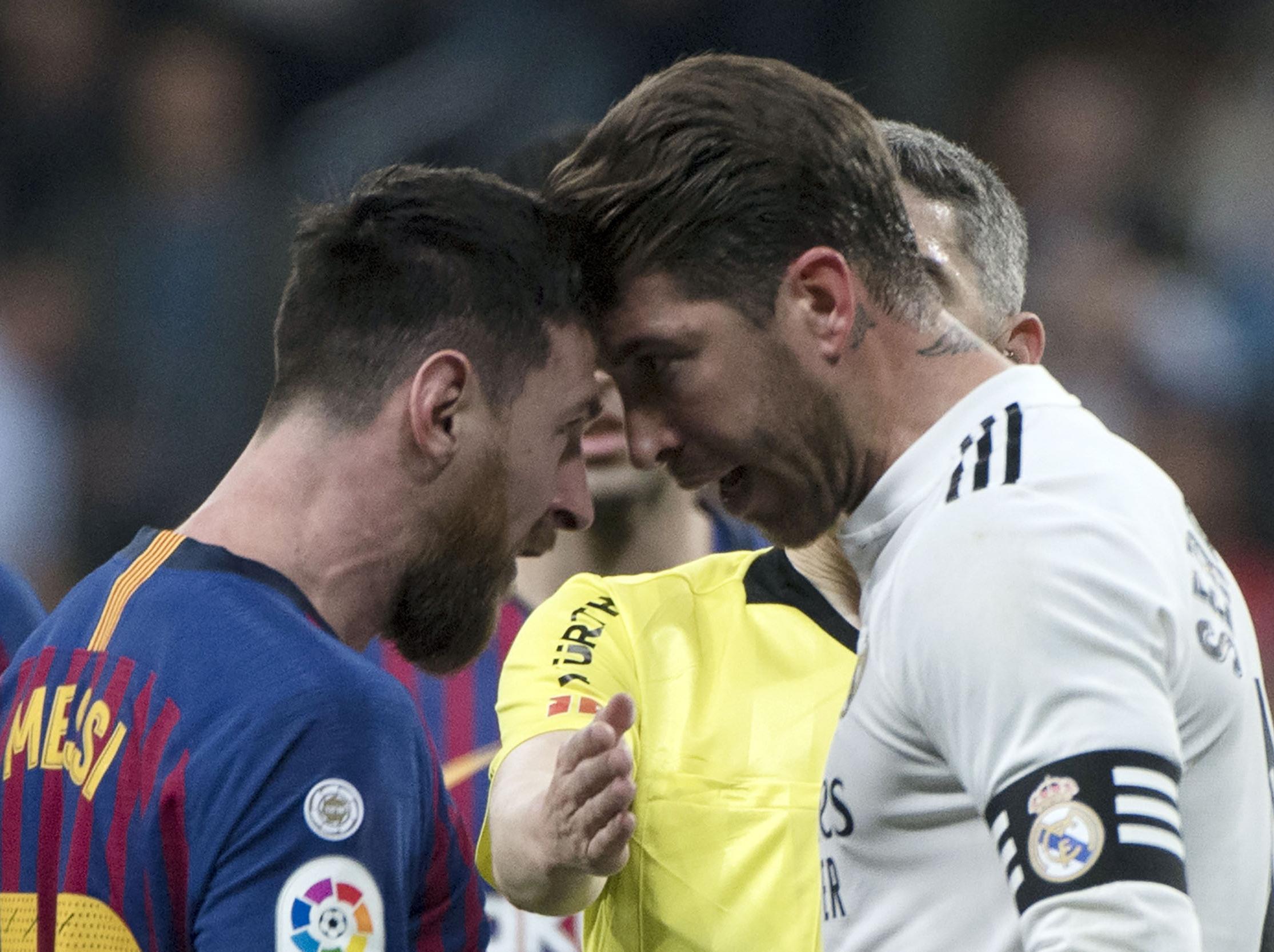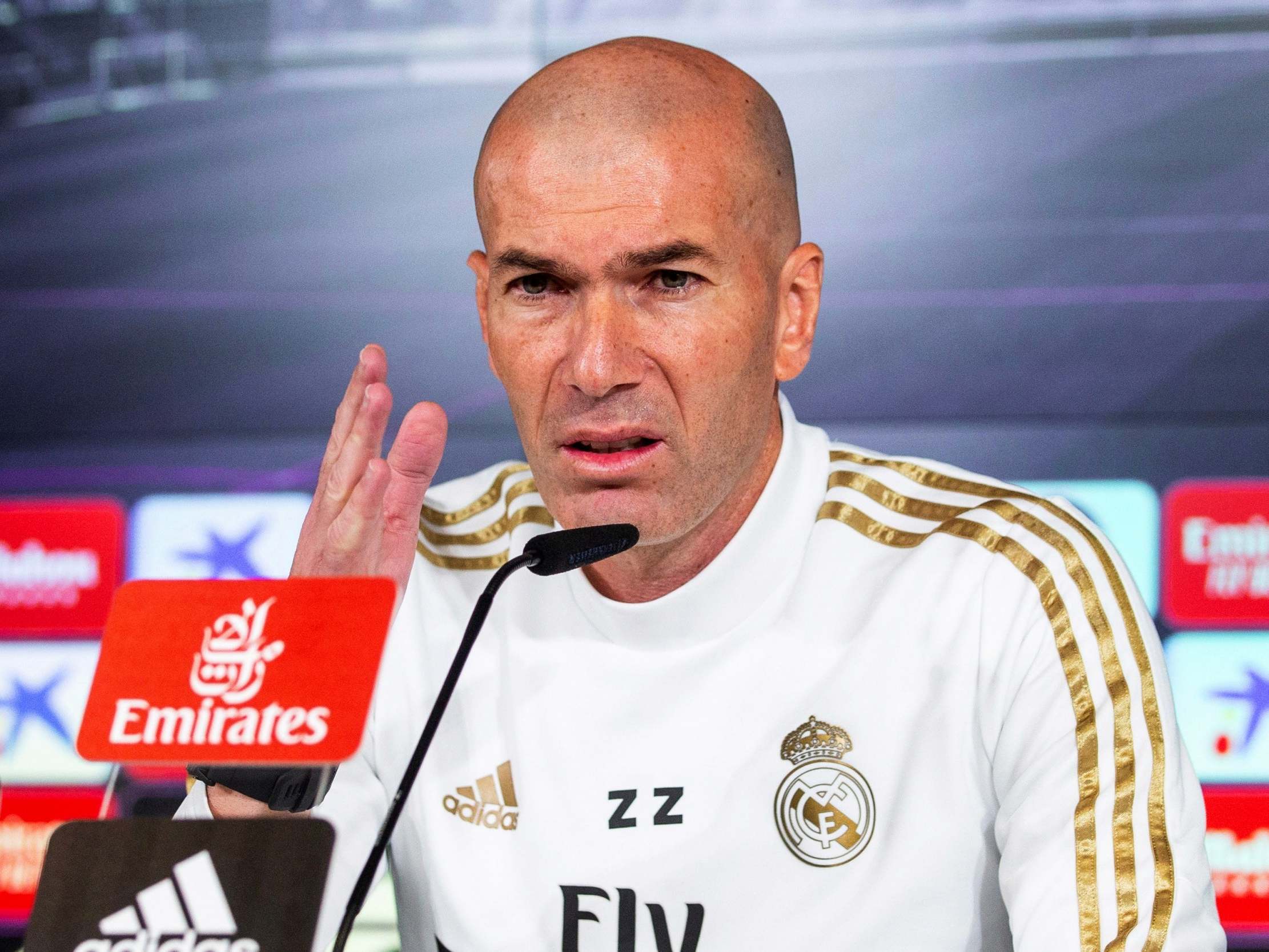Barcelona vs Real Madrid: Lionel Messi’s brilliance endures but El Clasico no longer the showpiece it once was
The last 10 years have effectively been the decade of the Clasico, a period when it probably reached a historic peak and became a global mega-event, but that isn’t the case anymore

Your support helps us to tell the story
From reproductive rights to climate change to Big Tech, The Independent is on the ground when the story is developing. Whether it's investigating the financials of Elon Musk's pro-Trump PAC or producing our latest documentary, 'The A Word', which shines a light on the American women fighting for reproductive rights, we know how important it is to parse out the facts from the messaging.
At such a critical moment in US history, we need reporters on the ground. Your donation allows us to keep sending journalists to speak to both sides of the story.
The Independent is trusted by Americans across the entire political spectrum. And unlike many other quality news outlets, we choose not to lock Americans out of our reporting and analysis with paywalls. We believe quality journalism should be available to everyone, paid for by those who can afford it.
Your support makes all the difference.At Real Madrid’s Valdebebas training ground, the coaching staff have been primarily concerned with one challenge that remains a constant to the Clasico. They’ve been trying to figure out a new way to limit Lionel Messi’s impact.
Everyone at Madrid – and Barcelona – knows that you can’t really stop him. If he’s in the mood and in form, he’ll win the game. All any side can try to do is contain him as much as possible. Messi remains the differential, the one player that stands above everyone else. He’s also, in a sense, the last man standing.
The last 10 years have effectively been the decade of the Clasico, a period when it probably reached a historic peak and became a global mega-event, but it’s difficult not to feel the last Clasico of this decade also represents a decline, that it’s not quite what it was. Some of this is of course relative.
The decade opened with Barcelona putting out perhaps the greatest team to ever play the game, and Madrid responding with buying what was then the sport’s most expensive team. Personifying these extremes of excellence were the players and managers. The two best footballers in the world were in their prime, with one on either side, and both squads effectively shared Spain’s World Cup-winning national team. The two best managers in the world were also in their prime and on either side, effectively splitting the sport with their competing philosophies.
Aptly reflecting the grandiosity of the fixture, it thereby became the battle-ground for the deepest tactical schism of the last few decades, as Pep Guardiola’s proactive pressing possession game ultimately won out over Jose Mourinho’s reactive countering game. The reality was that they pushed each other to ever greater heights, and almost to the point of exhaustion.
This was football maxed out, two super squads running up such all-time records and winning at such a pace that the Clasico became the be-all and end-all – in so many senses.
Beyond being the most watched fixture in the world, it was maybe the most consequential as it often directly decided the destination of the Spanish title.
That was certainly the case with the first Clasico of the decade, when Barcelona beat Madrid 2-0 through goals from – of course – Messi and Pedro. The results of the two meetings were literally the difference in the 2009-10 title race, just about giving it to Barca. Had one of them gone another way, the league would have been Madrid’s.
That is certainly not the case with the last Clasico of the decade. The two teams now drop too many points elsewhere for this to matter so much.
There’s actually a fairly simple stat that indicates this. This week marks the first time that both clubs have dropped points in the last game before the Clasico since 2006/07. That might be partial coincidence given the fixture was postponed due to the political strife in Catalonia, but that trouble in itself almost reflects the sense of decay and fraying glossy image.
There was another pointed image in Barcelona this week. It was a piece of graffiti playing on the Cold War picture of the “Fraternal kiss” between Leonid Brezhnev and Erich Honecker, but with Gerard Pique and Sergio Ramos. Titled ‘Spain kiss and talk’, the image’s point relates to the tension around Catalonia.
It also makes an unintended point about this Clasico. The fact it is still Ramos and Pique representing the two sides, standing out as the totems, reflects the state of the squads. Both are well into their 30s now, with neither near the kind of form that once made them the best centre-halves in the world.
Pique has reached such a status and wealth that he has a host of other business interests, to the point that he’s started to get questioned over whether there are too many potential distractions.
Ramos has meanwhile risen to such a position of authority in the Madrid dressing room that there are questions over whether he runs it, and how positive that influence now is. It has done for more than a few coaches. They all know that to manage Ramos is to manage Madrid.
The lingering presence of these two players is symptomatic of each club’s bloated and somewhat ageing squads, with too many players and signings at the wrong point in their career. Now, as with the 06/07 campaign, Madrid and Barcelona look so inefficient compared to the top English clubs, who are back dominating Europe.
The Spanish two certainly look financially weaker, too. This is what much of it comes down to. Both would love to sign Neymar, as an example, but neither has the financial muscle any more to make it simply happen. As regards Madrid’s pursuit of Paul Pogba, meanwhile, they are left to play mere media games. That’s what they’ve been reduced to.

For a Ruud van Nistelrooy past his best in 2006 read Antoine Griezmann in 2019. Too many of the key players are in their late 20s or beyond, perpetuating the financial problem because of the expense of their contracts and how difficult it is to move players on. A case in point was Barca’s failed attempts to sell Ivan Rakitic, who just didn’t want to move away from that deal and that life.
Many officials at both clubs have bitterly complained about this, and argued that their structures mean they just don’t have the same revenue streams as the top Premier League sides. It is thereby little wonder some of them are the main advocates for a European super league.
But it is not all about money. It is also how they use it. The regimes at both clubs have now been fairly questioned, with a lot of criticism about their principles and directions.
There has been internal disagreement in Madrid about their recruitment, with many saying their summer spending spree didn’t actually improve the squad in a tangible way. Only Eden Hazard is seen as cutting it, but even he feels a little B-list so far compared to previous big signings. There was also anger within the club when Mourinho agreed to the Spurs job, because they felt they had him ready to replace Zinedine Zidane if results again go awry. The fact there are still so many reservations about the Frenchman – not least among some of the players, who refer to a “clap-your-hands” manager – speaks volumes. The fact the solution would have been the backward step to Mourinho says even more.
Barca meanwhile have their own back-and-forth over their coach, with the perpetual debate about Ernesto Valverde. He is seen as tactically flat, indecisive and ultimately not having any positive effect on the players. This, it is argued, has been repeatedly and resoundingly exposed in those Champions League collapses.

Whatever the truth, it does seem this Barca are, at best, a mere mimicry of what they were at the start of the decade, only paying lip service to the Guardiola principles.
But then it’s also true that they’re repeat champions. They’ve generally just been better than Madrid, as reflected in so many tables and so many results. Madrid have not won a Clasico in the league since April 2016.
Then again, it’s difficult know whether that’s just down to Barca having the best player in the world in Messi.
That’s still something this Clasico has, too.
It’s similarly possible that all of these issues could actually make it a more entertaining and open game, less bound by the parameters of perfection. There’s still so much wrapped up in it, not least the political dimension.
It’s just it no longer looks or feels the highest level of the sport. The only one remaining at that level is Messi. He is all that is left of a decade’s worth of football decadence.
Join our commenting forum
Join thought-provoking conversations, follow other Independent readers and see their replies
Comments